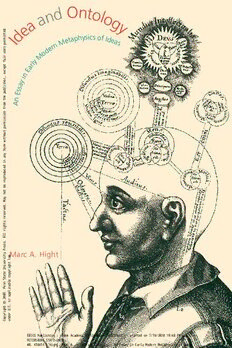
Idea and Ontology: An Essay in Early Modern Metaphysics of Ideas PDF
294 Pages·2012·2.865 MB·English
Most books are stored in the elastic cloud where traffic is expensive. For this reason, we have a limit on daily download.
Preview Idea and Ontology: An Essay in Early Modern Metaphysics of Ideas
Description:
The prevailing view about the history of early modern philosophy, which the author dubs “the early modern tale” and wants to convince us is really a fairy tale, has it that the focus on ideas as a solution to various epistemological puzzles, first introduced by Descartes, created difficulties for the traditional ontological scheme of substance and mode. The early modern tale depicts the development of “the way of ideas” as abandoning ontology at least by the time of Berkeley. This, in turn, fostered an antimetaphysical bias as modern philosophy developed further, elevating epistemology to its current primary status in the field. Marc Hight challenges this account by showing how, though the conception of ideas changed over time, the ontological status of ideas remained a central part of the discussion about ideas and influenced how even later thinkers like Locke, Berkeley, and Hume thought about them. By his reading of important texts in early modern philosophy, Hight aims not only to provide a more accurate history of philosophy for this period but also to resuscitate the value of metaphysics for philosophical analysis today.
See more
The list of books you might like
Most books are stored in the elastic cloud where traffic is expensive. For this reason, we have a limit on daily download.
